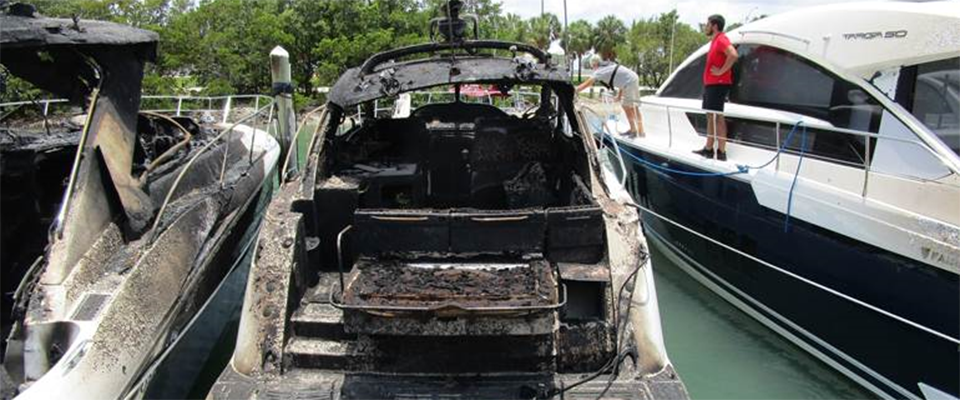Marine watercraft estimatics
Learn to understand policy language from standard Hull & Machinery policies as they relate to investigating and handling marine yacht and watercraft claims.

Course information
Price
$1195
Duration
Call for dates and details
COURSE DESCRIPTION:
The Marine Watercraft Estimatics course is designed to highlight the main topics required for an adjuster to be familiar with when handling marine claims of the specified designation. The entire course is recommended to be taken by all students. This course is geared towards vessels less than 45’ in length, with the emphasis on motor vessels.
Students will learn how to understand policy language from standard Hull & Machinery policies as they relate to investigating and handling marine yacht and watercraft claims. They will also learn how to identify the different types of vessels that may be subject to their handling, as well as different types of circumstances of loss and how to approach each one respective to what may be required. Background will be provided on how repair vendors approach estimating damages, managing expectations of overall repair costs, and how to identify fair and reasonable costs.
COURSE DESIGNED FOR:
- Desk adjusters who are familiar with the marine field
OUTLINE OF TOPICS:
Day One:
1. Introduction and Overview of Course
2. Motor Vessel Identification:
a. Motor Yachts
b. Cabin Cruisers
c. Center Consoles
d. High Performance
e. Pontoon Vessels
f. Fishing & Dive Vessels
g. Common Construction Types
h. Hull Identification Number (HIN)
(Discussion should include equipment on board, what to look for in claims, water intrusion)
3. Common Motor Vessel Propulsion:
a. Inboard Diesel Engines
b. Inboard Gasoline Engines
c. Outboard Gasoline Engines
d. Transmissions
e. Traditional Shaft & Fixed Blade Propellers
f. Outdrives & Sterndrives
g. Pods
4. Sailing Vessel Identification:
a. Monohulls
b. Catamarans
c. Common Construction
5. Common Sailing Vessel Propulsion:
a. Sails and Rigging
b. Inboard Engines
c. Sail Drives
6. Common Vocabulary & Terms
a. Motor Vessels
b. Sailing Vessels
c. Machinery & Components
d. Mast and Rigging
7. Day One Closing Comments
Day Two:
1. Electrical Systems
a. 12/24VDC Systems
1) Batteries
2) Navigation Equipment
3) Common System Components & Configuration
b. 120/240VAC Systems
1) Shore Power
2) Generators
3) Common System Components & Configuration
4) Electrolysis
2. Causes of Loss & Investigation
a. Different Types of Loss
1) Fire
2) Sinking
3) Electrical Events
4) Groundings
5) Collisions and Allisions
6) Machinery Failure
7) Third Party
b. Fortuitous vs Non-Fortuitous
c. Theft/Fraud Indicators/Indirect losses
d. Sue and labor vs. Wreck Removal
3. Understanding Estimates and Invoicing
a. Reviewing and Understanding Repair Estimates
b. Understanding denials based on surveyor’s report
c. Understanding labor vs. removal of personal property
d. Supplementals
e. Final Invoicing
4. Average Depreciation Schedule
a. Calculating Depreciation
b. Common Depreciation Percentages to Apply per Annum
5. Closing Course Comments and Open Q&A


